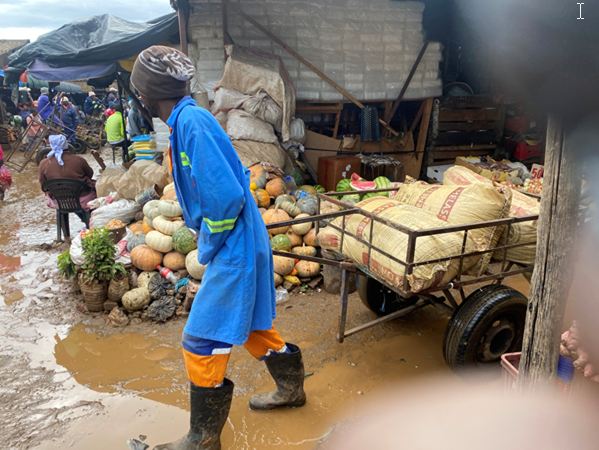In most African countries that depend on agriculture, policies are often blamed for poor economic performance and failure to improve the lives of ordinary people. While policy documents may make a lot of sense, the devil is in the implementation details. What breaks or makes a policy is disciplined documentation of implementation steps including assumptions that underpin the policy document. Without documentation, resources will continue to be invested in flawed agribusiness models.

Building a shared understanding of challenges and opportunities
Many African countries lack a shared understanding of the core challenges facing their agriculture and food systems. Some stakeholders think low production per hectare is the main challenge while others think the main issues are post-harvest losses and absence of reliable market. Disciplined documentation lays out reliable pathways for developing a shared understanding of the core challenges and opportunities within agriculture and food systems, for instance. When every value chain actor understands the core challenges and opportunities in each value chain, everyone becomes ready for the next production cycle.
As long as the ministry of agriculture thinks production is the main issue, other parts of the value chain such as post-harvest losses and market development are ignored and left for NGOs to tackle. Disciplined documentation policy implementation steps can reconcile divergent perspectives much better than sporadic news coverage which pushes a one-sided message without balancing with feedback from the ground. Documentation can include clarifying the problems caused by the proliferation of inputs companies that are overwhelming farmers and rural communities with too many conflicting alternatives, action plans and interpretations in counter-productive ways.
Toward consistent documentation of informal mass markets
Given that informal mass markets handle more than 70 percent of agricultural and food commodities, disciplined documentation should capture what is happening in these markets instead of government just collecting statistics from formal companies and parastatals. African mass markets have unique capacities to help farmers translate commodities and value chains into diverse opportunities that speak to readiness for the next farming season. As ready markets, mass markets enable farmers to be self-reliant and not expect hand-outs from government or donors all the time. The mass market also provides a common language that enables farmers and other value chain actors to compare their commodities with other commodities in the market toward profitability. Rather than passively tracking progress on the production side, agricultural extension officers should be empowered to track what is happening along entire value chain nodes including transportation, storage as well as consumption trends of diverse commodities. Fragmented data from the production side makes it difficult to capture emerging opportunities and analyse challenges as well as convert challenges into solutions.
The absence of disciplined documentation has made it difficult for African policy makers and academics to define and classify mass markets in terms of knowledge not just in terms of income. Such data is vital for unlocking value from existing abundant natural resources. It is unfortunate that there are no institutions responsible for packaging community expertise and indigenous knowledge held by farmers. Policy makers and local authorities are not able to define what is in the mass market in terms of skills and expertise. Everything remains scattered yet activities could be documented and packaged to create growth pathways by showing who is doing what, types of existing knowledge and knowledge gaps that should be closed if value chain actors are to grow beyond their current status.
Using documentation to understand the underground economy
A large portion of African economies has remained underground because there have not been efforts to generate a deep understanding of socio-economic, environmental and political drivers through disciplined documentation. Knowledge, information and expertise systems that can inform and direct investments should be carefully documented. Absence of documentation systems is one big challenge in how to link the formal education system with the existing economy. In as much as there is useful content in curricula and graduates, there are no systems to direct graduates where they can apply their education and acquired knowledge.
Given that more than 70% of African food systems are driven by SMEs and smallholder farmers, it is through disciplined documentation that African economies can tap into mass markets to create employment and career paths for diverse graduates. Those who studied supply chain and logistics should find a career in mass markets, the same applies to agricultural economists as the reality of agricultural economics is visible in mass markets. Statisticians and food scientists should also be present in mass markets not in the laboratory. All these experts should bring their knowledge, passion and expertise to understanding and institutionalizing mass markets in order to open value addition opportunities.
Broadening the mandate of municipalities and rural local authorities
Through disciplined documentation, a knowledge and information generation culture can be built on existing pre-colonial institutions like municipalities and rural district councils so that they have fully-fledged departments devoted to understanding the emerging economy. In undocumented ecosystems like mass markets, information and knowledge are within farmers and traders. Local authorities can easily capture this information to inform all other government departments. Sustainability starts with knowledge and information generation which drives income from agricultural markets. Markets enable re-investing into an agriculture-driven economy, without which there is no resilience and sustainability especially under a changing climate. Without disciplined documentation it remains difficult for government departments to share development information timely.
Charles@knowledgetransafrica.com / charles@emkambo.co.zw /
Website: www.emkambo.co.zw / www.knowledgetransafrica.com
Mobile: 0772 137 717/ 0774 430 309/0712737430
